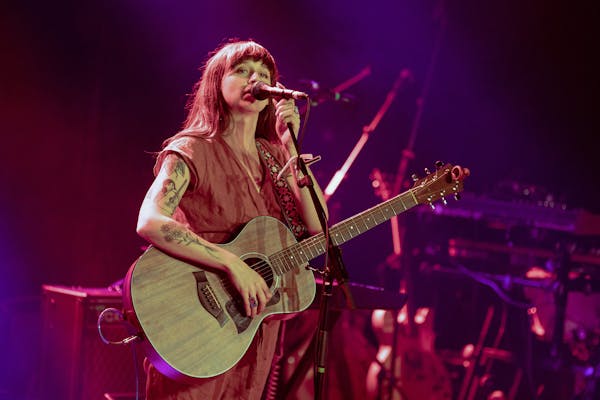The city of Minneapolis is trying to get plugged into its music economy.
Starting Friday, an online questionnaire dubbed the Minneapolis Music Census will begin asking musicians and music professionals within the city about their backgrounds, where they live, where and how they work, and other information related to their profession.
The census, which is anonymous, can be filled out over the next two weeks at mplsartsandculture.org. It's being conducted by a company called Sound Music Cities out of Austin, Texas, where city-run music initiatives have helped the town earn its slogan as "the live music capital of the world."
In Minneapolis, the census work is being spearheaded by the city's new Arts & Cultural Affairs Department with support from the Minnesota Independent Venue Alliance (MNIVA), Meet Minneapolis, First Avenue, Hennepin Theatre Trust and other organizations within the music community — where the buzz for the data-collecting project is building.
An offshoot of the National Independent Venue Association that successfully lobbied for financial support from Congress during the pandemic, MNIVA brought the idea of the census to the Arts & Cultural Affairs Department last year after hearing of its success in other cities, including Seattle and New Orleans.
"We're extremely optimistic about this," said Jack Kolb-Williams, executive director of MNIVA and a longtime Twin Cities music promoter with the nonprofit all-ages organization Catalyst Music.
"It will provide a much more thorough picture of what is happening in our music community, a foundation of data that can be valuable for advocacy and addressing the issues that need to be addressed."
Sound Music Cities founder Don Pitts, a former music liaison with the city of Austin, said the data his company collected in other cities already has been put into effect at their respective city halls.
Some examples: Sacramento, Calif., added another tier for entertainment licenses making it easier for restaurants and coffee shops to host live music. Chattanooga, Tenn., sparked more collaboration from the local university and Chattanooga Tourism, plus it enlisted a program for journalism students to work for various media outlets spotlighting artists and venues in lieu of full-time music writers in town.
"What we have seen is, there are usually a couple of big-ticket items that get addressed and a lot of smaller tweaks and adjustments from community organizations using the census data," Pitts said.
Of course, predicting what might happen at Minneapolis City Hall once the data is compiled is more of a guessing game.
The Minneapolis Park & Recreation Board has taken some public relations knocks the past couple of years since it ignored a petition to start paying musicians for its Music in the Parks series, and for trying to charge a licensing fee for buskers in parks.
Mayor Jacob Frey issued a statement supporting the census.
"Minneapolis musicians are world-class," Frey said. "So are our city's venues, clubs, festivals, radio stations and audiences. We want the world to know about the brilliance of our unique and diverse music scene, and the Minneapolis Music Census will help guide us there."
The city's director of the Arts & Cultural Affairs Department, Ben Johnson, believes the census will see real results. He said his department's very existence — conceived during the pandemic — is evidence the city is getting more serious about boosting the music scene alongside all the other arts sectors.
"The city hasn't had [an arts] department for 50 years, so it's playing catch-up," Johnson said, emphasizing he wants the census to reach all corners of the music scene: "I want to hear from Native musicians, East African musicians and everyone that reflects this city's rich diversity."
Some of the ideas Johnson threw out for after the census is completed include: programs promoting access to studios, audio and light technicians, and other mentors for rising musicians; and maybe even a program to support artists going to the annual South by Southwest Conference in Austin.
Johnson also urged non-musician professionals who work in venues, studios, education and other music-related businesses to fill out the online questionnaire. The deadline is April 26.
"This is a great way for us to get to know our music scene and see who really is in it," he said, "and to find ways to get artists to be seen and developed."
Minneapolis Music Census
Online: mplsartsandculture.org
Deadline: April 26.

The 5 best things our food writers ate this week

A Minnesota field guide to snow shovels: Which one's best?

Summer Camp Guide: Find your best ones here

Lowertown St. Paul losing another restaurant as Dark Horse announces closing

